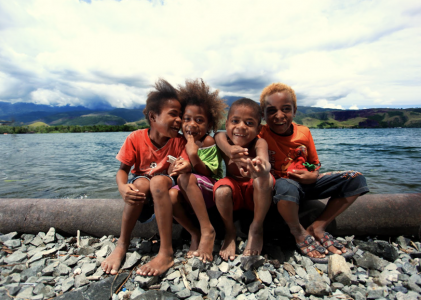
Westnoken Jakarta – Papua, a region rich in natural and cultural resources, is faced with significant dynamics on the road to development and improving the welfare of its people. Despite being blessed with abundant natural wealth, from vast tropical forests to large mineral and energy reserves, as well as cultural riches that can be important assets in social and economic development, Papua still has to continue to struggle with serious security challenges. Separatist groups, with various motives and methods, continue to carry out actions that disrupt security, cause material losses and cause casualties, both innocent civilians and security forces tasked with restoring security in the region. This instability creates an atmosphere of uncertainty and fear, hampering investment, infrastructure development, and community empowerment programs.
Until now, Papuan separatist groups continue to disrupt security, showing that this challenge is not something that can be overcome in a short time. Recurring attacks signal an urgent need for more effective security strategies and a more holistic approach to addressing this problem. The Indonesian government has attempted to resolve the conflict in Papua in various ways, but these efforts have not produced significant results. The government has taken a dialogue approach and reconciliation efforts, but the Papuan separatists are not cooperative and are deliberately creating chaos. The government has also improved the welfare of the Papuan people, especially in the fields of education, health and the economy. However, these efforts were unable to dampen the desire of Papuan separatists to separate from Indonesia.
This security disturbance has a broad and deep impact on the development process in Papua. Security instability reduces investor confidence, limits access to basic services, and hinders the implementation of development programs. Apart from that, prolonged conflict also drains resources that could be allocated for development. Violent actions carried out by Papuan separatists have resulted in significant casualties and material losses. These actions have also caused unrest and fear among the Papuan people.
The atrocities committed by Papuan separatist groups have left a deep mark in the minds of the people, causing widespread trauma. Not only has material and life been lost, but it has also torn apart social life, creating an atmosphere of constant insecurity. Civilians in conflict areas, who should feel safe in their daily lives, now live in the shadow of uncertainty and fear. The psychological trauma caused by these acts of violence not only impacts the individuals directly involved, but also the community as a whole, hindering social interaction and societal development. This pervasive sense of fear poses an additional barrier to development and recovery efforts, requiring serious attention and addressing to ensure that communities can again feel safe and support steps towards a more peaceful and prosperous future.
Therefore, more serious and comprehensive efforts are needed to resolve the conflict in Papua. The government has received support from various parties, including Papuan community leaders, to find a solution that is acceptable to all parties. To ensure that development can take place effectively, a comprehensive and inclusive approach is needed, which not only addresses security issues from a military aspect, but also addresses the root social, economic and political problems that trigger conflict. With the right approach, which combines the power of security, socio-economic development and constructive dialogue, Papua can overcome these challenges and move forward towards a brighter future, where all its people can enjoy the fruits of inclusive and sustainable development.
The role of community leaders, traditional leaders and religious leaders in Papua is very crucial in efforts to create stability and peace amidst a challenging situation. As leaders who are respected and trusted by society, they have a significant influence in shaping society’s opinions and attitudes. With local wisdom and a deep understanding of social dynamics in the region, these figures can become a communication bridge between the government and society, as well as between groups in conflict. They also play an important role in reducing tensions, spreading messages of peace, and promoting reconciliation. In an inclusive development process, the presence and active participation of community, traditional and religious leaders not only helps in overcoming security challenges, but also ensures that development is carried out in accordance with the values and needs of local communities, so that the results can be felt and maintained by society itself.
In the journey towards a more peaceful and prosperous future, the active role of the Papuan people is an important key. The community is expected to have the resilience and strength to reject all forms of intimidation and provocation from separatist groups who seek to influence with ideologies that are contrary to the spirit of unity. Community awareness and participation in maintaining the values of togetherness and unity of Indonesian citizens is very vital. By standing firmly within the framework of the Unitary State of the Republic of Indonesia, the Papuan people not only protect their own heritage and future, but also make a valuable contribution to the integrity and progress of the nation as a whole. Therefore, every effort to strengthen solidarity, deepen mutual understanding, and build community resilience against negative influences is an important step that must continue to be encouraged and developed. In the spirit of ‘Bhinneka Tunggal Ika’, Papua’s diversity is a wealth that forms Indonesia’s uniqueness, strengthening the foundations of a nation founded on diversity and unity. Ensuring that Papua, with all its potential and challenges, can achieve its highest aspirations in peace, security and prosperity is a concrete manifestation of the spirit of unity in diversity that we uphold. Let’s come together and unite to build the Papua we love.

